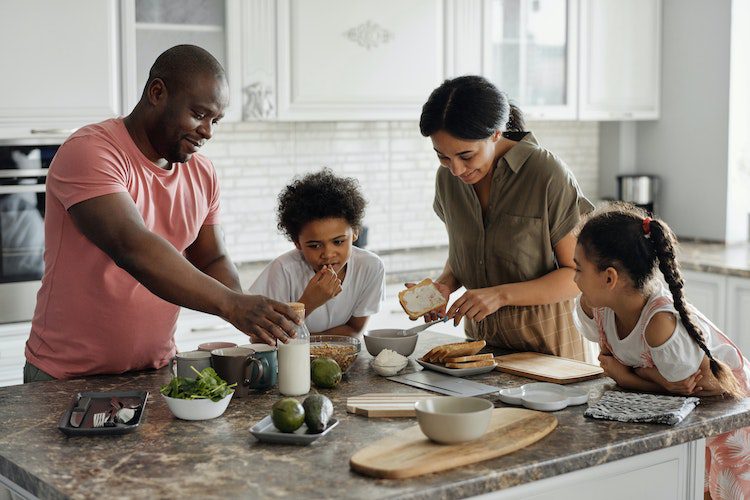How are your cooking skills in the kitchen?
Are you a person who enjoys coming up with menus and then preparing a range of dishes? Or are you a person who can boil water for pasta and use the microwave fairly effectively? Or are you a person who needs someone else in your household (or at a restaurant) to handle all the cooking?
Regardless of your current culinary skills, we would like to suggest that cooking is a wonderful activity for a person in recovery from a substance use disorder. Getting adventuresome in the kitchen offers a number of benefits that can support your sobriety.
Let’s take a look at three of those benefits.
Cooking Can Be an Engaging Hobby
For many people, cooking is just a chore—not that different from doing laundry or washing dishes. It’s something that has to be done, but it isn’t exactly fun.
But we would like to suggest that the act of cooking can be joyful and engaging. The creation of tasty dishes is part art and part science, and the variety of things to try is endless—which means it can make a wonderful hobby. And hobbies can be a key part of your recovery.
In addition to your time in the kitchen, there are plenty of other ways to bolster your interest in and knowledge of cooking. There are whole television networks devoted to food and cooking. There are podcasts, magazines, books, and more devoted to the culinary arts. And there are often classes on offer from community colleges and other organizations that can help you sharpen your skills in the kitchen.
On top of all of that, the simple act of exploring cookbooks—of which there are so very many—can be pleasurable even if you don’t decide to make any dishes in a particular book.
Cooking Can Improve the Nutritional Value of Your Diet
Good nutrition provides essential support for your sobriety, and when you are doing the cooking you can make smart choices about what you eat. Cooking meals yourself allows you to choose fresh, healthy ingredients that support your physical health, your mental health, and your sobriety. When you make a meal from scratch rather than simply heating up something premade and prepackaged, you end up eating better tasting food that is significantly better for you.
When you are doing the cooking, you can also keep an eye on portion size and the amount of sugar (which can be problematic for a person in recovery) you consume. You can ensure you eat lean proteins and complex carbs. And you can make certain your diet includes plenty of colorful fruits and vegetables.
Cooking Can Be a Great Way to Strengthen Your Community
While you can, of course, cook by yourself and only for yourself, in the best of cases, cooking is a communal activity. It is important for people in recovery to build strong, supportive relationships—and food can certainly bring people together.
You can share the kitchen with family or friends, making food prep into a fun social activity. And, of course, you can share your table with family and friends, too, bringing people together over a wonderful meal (and if the meal is at your place, you can make sure there is no alcohol on offer).
But what if your living situation is not conducive to dinner parties? You can still cook for others, taking food to your friends and family (or cooking in their kitchens), to shut-ins in your community, or to others in need. As we have noted, food can bring people together—and service can support your sobriety—and that is true even if you are not serving the food in your own home.
On the Menu at Wooded Glen: Sustainable Sobriety
Over time, drugs and alcohol can steal away nearly all the pleasures in life. When you need substances to help you get through the day, you cannot even enjoy a good meal or time with friends and family. A substance use disorder has a way of stealing your focus so that you no longer enjoy much of anything.
But you can reclaim the good things in your life by reclaiming your sobriety—and we can help. At Wooded Glen Recovery Center in Henryville, IN, our menu includes medically monitored withdrawal management and detox, a rehab program that includes treatment for co-occurring mental health disorders, and a continuum of care that provides ongoing support and resources as your recovery journey gets underway.

